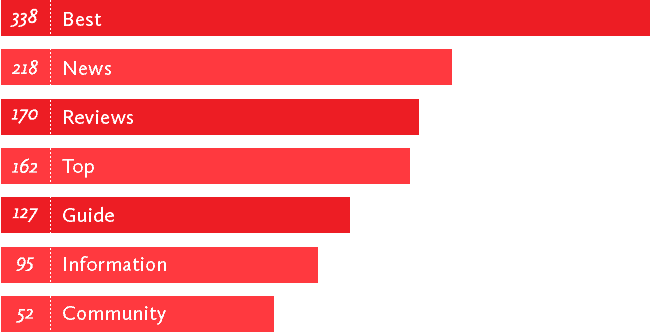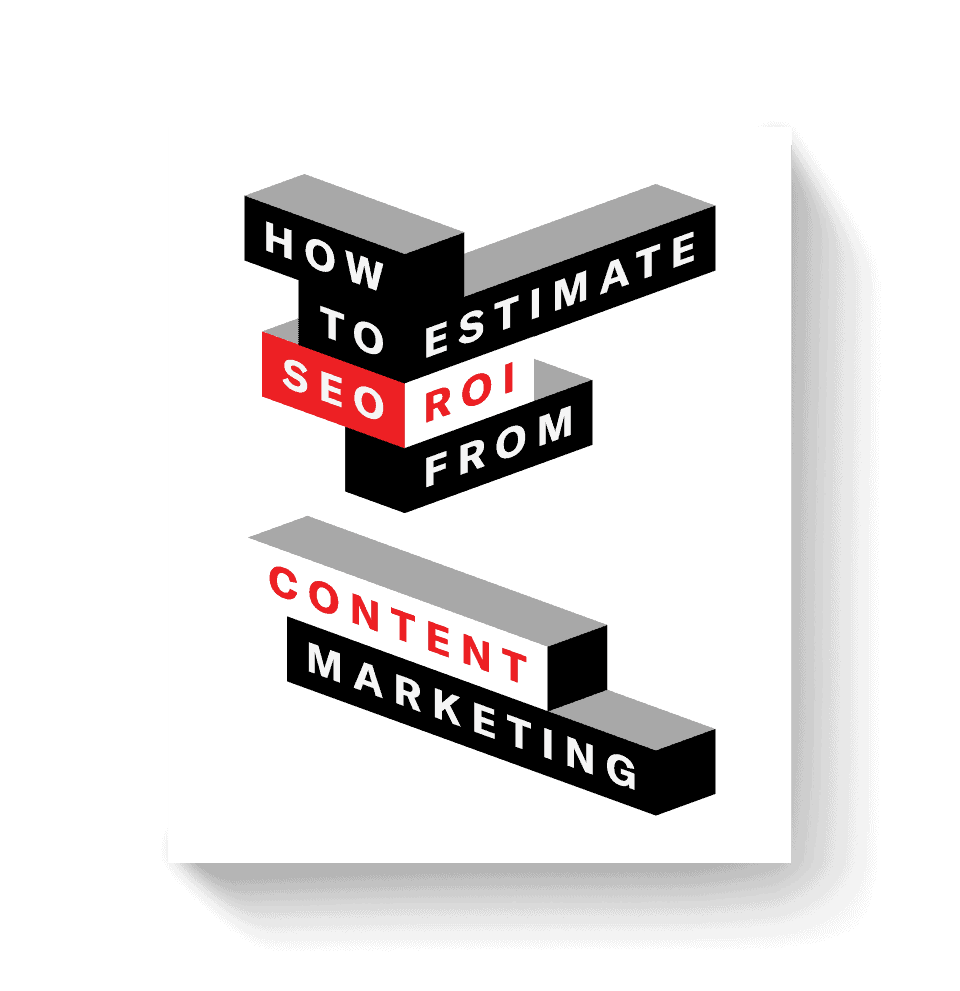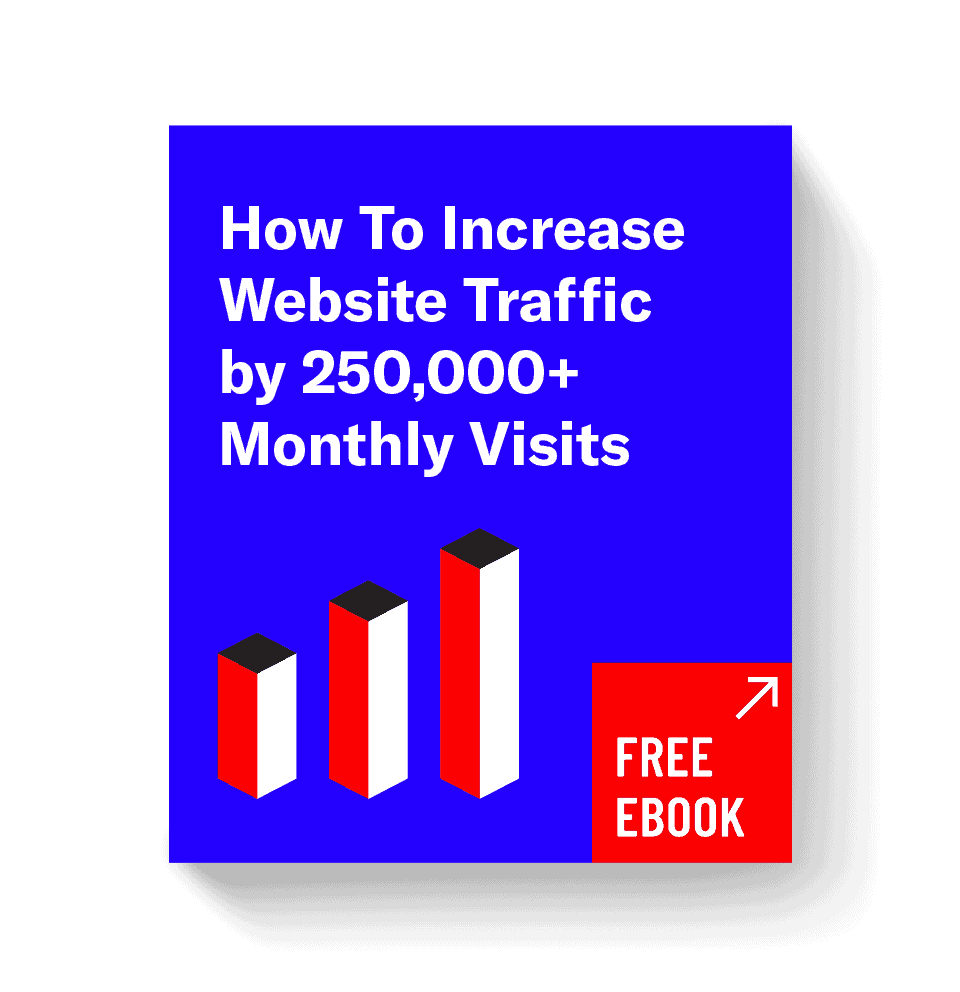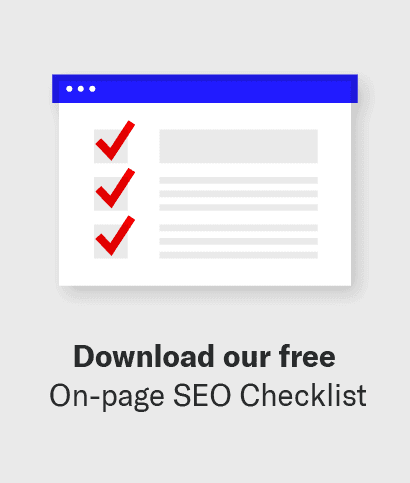Ever since Google has started rewarding a lack of optimization and opened up to an emphasis on CTR optimization in title tags, I’ve had some theories that some words in particular seem to give a “boost” – either correlative or causative, in the ranking of websites.
While I don’t think there’s really any magic bullet, I’m fairly confident certain types of pages just tend to get more links and/or interest – and on the flip side, certain word additions in titles tend to get more clicks and/or interest – that may both strongly connect to ranking better in the search results outside of simply stuffing in several other keywords.
To test this theory, we enlisted the help of SEMRush to analyze a set of data that we thought would reveal the most interesting insights. This was our process:
1. Grabbed the 1000 most expensive keywords on a CPC basis that had search volume over 1000. We wanted to get a strong sample size, and also thought we’d get the most interesting insights on the most valuable keyword set instead of less competitive areas. You can see a sample snapshot of this keyword set below. To do similar analysis yourself, see SEMRush’s Rank page.
2. Grabbed the sites ranking on page one for all 1000 keywords. The thought process being page one for very competitive terms = a good indicator of potential impact a given word could have.
3. Grabbed the title tags of those pages to create a master list of 7999 pages. Our list was not an even 10,000 because of the variance in the number of displayed listings on some SERPs, as well as duplicates.
4. We removed the most used words in the original keyword set from the title tags. Using a tag cloud, we identified the most commonly occurring words in our list of keywords. We did this so there were no words that only showed up because they were more frequent in the original keyword set, which obviously would make them occur more often in titles. To give you a feel, the top 35 words appear below.
5. We ran the edited list of title tags through the tag cloud, which revealed the new most-used words.
6. We verified the usage of the remaining keywords in the original KW list, and also cleaned up the list/looked for erroneous words. To prevent human error/further refine the dataset, we QAed the final list and also left off words without value or lessons behind them – such as “Contact” or “Home”, which were there for obvious reasons.
In the end, we were left with a list of seven keywords that occurred enough in the pages’ title tags to glean insights from. For the purposes of giving you the full picture/allowing you to make your own conclusions, we’ve also included the number of times the word occurred on the original keyword list. The higher the number, the more likely that number influenced the total number of occurrences in the titles of our dataset.
The most illuminating group of keywords in the set, I see “best/top” as true differentiators on today’s search results. These keywords often suggest to searchers several positive things – first, that they’ll get to see the absolutely best thing for what they’re searching for, and second, that the opinion they get will be a (mostly) unbiased voice – or at least unbiased relative to the actual provider of the product and/or service.
For this reason, I frequently see these two words being the backbone behind many CTR testing wins in the SERPs, such as many of the examples I talked about in this post – as tests show them increasing clicks time and time again for those I’ve monitored.
In addition, in today’s landscape of non-optimization being the new optimization, I also believe there’s something to adding a word like this to the front of your title tag that may actually help you rank better on its own – which is counterintuitive when compared against the historical thought process of “we need the keyword at the front”.
When you consider that you may deoptimize plus add a CTR boost when adding this to your title – for a page that warrants it – it’s no wonder that two very similar words show up on this list of nine.
Title Tag Examples:
- Find the Best DUI Lawyer in Chicago, IL – Avvo.com
- The Best VoIP Services for 2015 | PCMag.com
- Top 20 Big Data Companies – Datamation
This keyword is an example of authority plus CTR – which of course relates – playing a part. On many competitive searches, news organizations offer a blended or authoritative page on the topic – and when coming from a trusted source such as US News, NBC News, or ABC, it almost certainly is more likely to warrant user clicks as compared to less trustworthy results.
However, it’s also very possible that on many searches, you search for things, and want news – but simply don’t have the search behavior of adding “news” to the search. An example of this might be news of a train derailment or more sadly, Justin Beiber. For that reason, it would be smart of Google to give a “boost” to sites offering news results, and there’s few stronger signals than the word in the title or domain name of those offering it.
There’s also the reality that Google is featuring in-depth articles on many SERPs. According to MozCast at the time of this writing, these appear 13.1% of the time you search. Surely, many sites with “news” in the titles have an advantage in terms of showing up in this area – which would be a compelling reason for the higher incidence in our sample.
Title Tag Examples:
- Learn How to Detox with a Coconut Oil Cleanse – NaturalNews.com
- 8 Reasons Not to Get a Business Degree – CBS News
- How to Follow Up On Your Job Application – US News
Similar to the best/top example, reviews showing up on search results is a good indicator that users want to get information from an unbiased (or at least somewhat unbiased) third party before making a purchase decision. On a search result such as “laptops”, many searchers are likely to click the “laptop reviews” result first before ever clicking a laptop provider – because they aren’t certain or trusting in a direct manufacturer until they get a third party opinion.
For that reason, I believe Google is helping surface results – or if not that, the CTR adjustment on these kinds of results would likely do it for them.
Title Tag Examples:
- 2015’s Best Hosting Services | 100% Real Reviews
- Rivaroxaban Reviews & Ratings at Drugs.com
- RingCentral Reviews – voip-info.org
In many ways, guide means the comprehensive, all encompassing book on whatever it addresses. Similarly, the 1st result for most searches should be the same thing – so it’s not a complete surprise that a term like this shows up often in search results.
It’s also a potential CTR boost as well – I know when I see topics like “The Complete Guide to X”, I’m drawn to it. Of course, if you proclaim the complete guide and then end up not being it, you’ll lose some respect, and likely incur some bounces from the search results as well.
Similarly, there seems to be a strong correlation between guides and links as well – by nature, something all-encompassing on a subject is likely to draw links. And there’s no better way to signal that your content is that than by including guide in its semantics. Correlation or causation, creating guides can certainly help you rank for many terms you hope to rank for.
Title Tag Examples:
- Mobile Device Management – Vendors and Comparison Guide
- Guide to Online Criminal Justice Programs – CriminalJusticeDegree.org
- What is Contract Management Software? A Beginner’s Guide | Selectica
Information feels like the weaker version of “guide” – although the numbers don’t really speak to it. Information did tend to surface on more authoritative sites that instead of needing to fake their authority, just sorta knew it – which is interesting in and of itself.
Likely a greater indicator here, though – which is also in common with “guide”, is that these kind of search results tend to lay more on the helpful side than the commercial side. On extremely competitive SERPs, being the non-commerical differentiator can be the magic ticket – both for Google and for users looking to find a result to click that isn’t looking to take their money.
Title Tag Examples:
- Cloud Computing information, news, and how-to advice | InfoWorld
- NJDOBI Consumer Information – Automobile Insurance
- Xarelto – FDA prescribing information, side effects and uses
Community was the most surprising on the list, and just skated in as the ninth keyword. Again, as is a commonality on competitive results, many users are desperate for unbiased answers – and often times a long thread on a popular forum can be one way of solving for that.
There’s something about forums, too, that lend towards more engagement – a thread with 100 replies – sorted by most popular (Stack Exchange anyone?) – creates a natural waterfall effect that could leave you glued for ten minutes. That’s the kind of engagement Google wants to reward (and probably is) – that can really only be seen in a popular, and well-ran, community.
Although of course, simply having this keyword in the title is not what makes that happen. Stack Exchange, for example, does not use this word – and is doing quite well.
Title Tag Examples:
- The Enterprise Mobility Forum: The #1 Community Resource on Enterprise Mobility
- How do I enable push to talk? – Skype community
- Connect with the Jruby Community – Jruby.org
What Keywords Did We Leave Off?
Once skimming through the above takeaways, you might be wondering which keywords we manually left off. There were actually quite a few, but I thought most of them had little to offer in terms of actionability or insights. Here’s the ones that were closest to making the list, but didn’t:
- Dictionary – 235 Total Uses, 0 Uses in Keywords: I originally had dictionary high on the list as the word had many mentions with few uses in keywords – until I realized “definition”, a close synonym, occurred 20 times in our original keyword set. That high incidence made me think it indirectly had a heavy effect on these showing up with frequency, although it’s still possible Google likes to blend in these types of results.
- Support – 72 Total Uses, 0 Uses in Keywords: Although this surfaced a lot, based on analysis of the title tags, most of the results seemed to occur based on navigational searches looking for customer service, and/or the occasional miscellaneous forum result.
What Can You Do With This Data?
So what does this all mean? What can you do with the information? The long answer is that if you aren’t already thinking about creating title tags better focused on CTR, you should be. However, if your sites don’t have any of the above attributes, you probably shouldn’t force include them – it probably won’t end well.
But if you are listing reviews – and you are creating guides – and you do have a community – it might not hurt to include those words in your titles. And if you’re creating reviews that clearly list the best or top result – you’d be smart to include that as well.
And after undergoing this analysis, one of the most interesting insights, to me, may not be at the macro level – it’s more likely at the micro one. It doesn’t look like there are any extreme “magic bullets” across a large sample of SERPs.
But if you look at strong incidence of “dictionary” as a word that showed up in our research, you can see that certain verticals definitely do have adjacent words that show up frequently, but aren’t necessarily repeatedly searched for.
I bet if you underwent this analysis for your specific vertical, with your specific title tags and with tighter ranking filters, you might reveal some new words to deoptimize your title tags and increase CTR outside this sample that you might not have otherwise identified – just like in the dictionary space. And that just might be the best application of this kind of experiment.
Thanks go to Nick Eubanks, Ryan McLaughlin, Bryan Vu, and Joel Klettke for reading drafts of this post.














